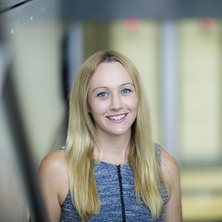Impacts in brain, neurology and mental health research
Protecting the brains of babies
 Researcher: Dr Julie Wixey
Researcher: Dr Julie Wixey
Background
Globally, more than 32 million babies are born each year with foetal growth restriction, a condition which affects brain development. For half of these babies, the complications are life-long, ranging from schooling and behavioural issues through to cerebral palsy. There is currently no treatment.
Impact
This research program showed for the first time that inflammation is closely associated with injury of the developing brain. I showed that the effects of brain injury continue even after the baby is born, identifying an important opportunity to target inflammation at birth to improve brain outcomes. My team is now working on tests to detect brain injury earlier and to identify treatments that can be transferred to the clinic to protect the brains of babies born with foetal growth restriction to improve life-long outcomes.
Identifying brain changes specific to psychiatric syndromes
Researcher: Dr Lena Oestreich
Background
Brain injury can result in a variety of different psychiatric disorders and complications that are often impossible to identify using brain scans. Our work looking at depression following a stroke and at schizophrenia uses machine learning for improved diagnosis, neurostimulation techniques as a new treatment, and has improved the planning process for brain surgeries.
Impact
This work has influenced many areas of science, including medicine, psychology, neuroscience and neuroimaging. It is currently being applied to other research areas including Parkinson's Disease (Japan) and some brain cancers (Germany).
